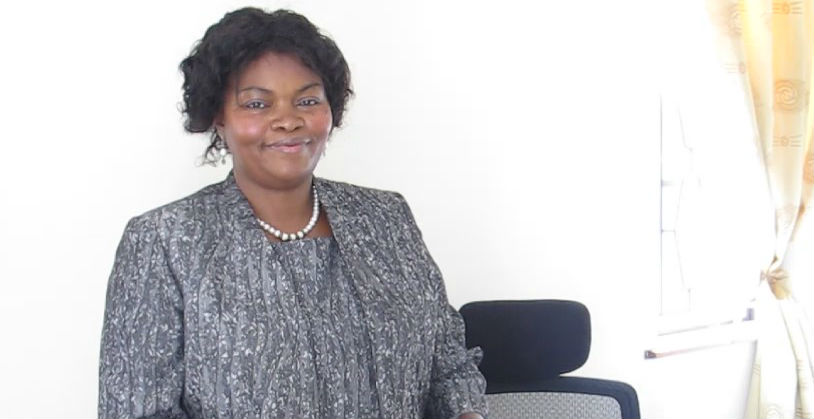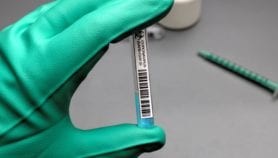By: Sam Otieno
Send to a friend
The details you provide on this page will not be used to send unsolicited email, and will not be sold to a 3rd party. See privacy policy.
Catherine Jane Ngila, a professor of applied chemistry, was awarded the best woman scientist in South Africa in the physical sciences in August 2016. She also became the African Union Kwame Nkrumah best woman scientist in the East African region in January 2017.
SciDev.Net interviewed Ngila last week (28 February) on, among others, her journey to becoming one of the top brains among African women in science, the challenges she has faced along the way and how she overcame them.
Could you describe to us briefly who you are?
I was born in Ithiani village, which is located in Kenya’s Kitui county, where I received my primary and secondary education before attending Lugulu Girls in Bugoma County, Kenya, for my advanced level qualification.
I obtained my bachelor’s and master’s degrees at Kenyatta University in Kenya and studied for my doctoral degree at the University of New South Wales in Sydney, Australia.
“I hope we can achieve gender equality where women and girls are empowered to ensure inclusive and quality education for all.”
Catherine Jane Ngila, Morendat Institute of Oil and Gas
I have research interests in water resource management. For nearly 30 years I have worked in academic institutions — Kenyatta University, University of Botswana and South Africa-based University of KwaZulu-Natal and University of Johannesburg until April 2017 when I joined Morendat Institute of Oil and Gas at Kenya Pipeline Company as the first deputy director in charge of training.
How successful do you consider yourself as a female scientist?
Well, I climbed the academic ladder from tutorial fellow to full professor. In the university there are four to five key performance areas: teaching undergraduate and supervising postgraduate students; research, development and innovation; community outreach; international networks and management or leadership. I have had significant outputs in the five areas.
I have taught from first year undergraduate to postgraduate students, and have successfully supervised postgraduate students, leading to 22 honours degrees, 26 master’s degrees and 20 PhDs. I have also trained 15 postdoctoral fellows.
I have also published significantly: about 300 journal articles, conference proceedings and book chapters. I have produced potentially commercial materials used as filters for water treatment.
Significant funding for research and provided bursaries for postgraduate students have also been sourced by me. Some of these students are now lecturers, senior lecturers or associate professors.
Moreover, I have presented my research findings in about 30 countries as either keynote speaker or invited speaker, at various conference or workshops platforms. A number of conferences that brought researchers together have been organised under my stewardship. I have been involved in several partnerships.
I have delivered many community public lectures to high schools and other audiences. On management, I have been a coordinator of various teaching and research programmes, deputy head of academic department and served from 2013 to 2016 as the head of the Department of Applied Chemistry at the University of Johannesburg.
What are some of the major obstacles you faced in your career?
Coming from a humble beginning after my mother died when I was only five years old and later my father died while I was in high school, I was subjected to a lot of hardships as I had to raise money to support myself in schooling. This was really challenging.
Also, working in foreign countries can be challenging, especially in regards to getting promotions. Not being able to get appointed to positions you know you deserve and (are) qualified for has been one of my disappointments. The journey continues till today as I look forward to occupy more senior management positions.
Other challenges include achieving academic growth and getting published in journals with high impact factor. But then, these are challenges for all those working in academic institutions. One has to work hard to improve the quality of academic research before recognition of one’s work in these highly-rated journals.
How did you overcome the challenges?
I worked extremely hard whether at school or at the workplace to get excellent performance outputs and promotions. For example, in 2013, when I was the head of Department of Applied Chemistry at the University of Johannesburg, I had to prepare a very involving proposal for equipment funding.
Because I was quite busy with administration and management duties, I could not set aside sufficient time to write the proposal. Two days before the deadline, I had to sit in the office for two nights without sleeping and eating, except for taking coffee or showering, until I submitted the application and beat the deadline.
I was successful in getting the funding from the South Africa National Research Foundation to buy research equipment worth almost US$1 million. That is what I call resilience and determination.
In your view, what are some of the problems African women face in science and how can they be addressed?
Stereotypes at all levels still exist even in higher educational institutions. It is difficult for women to get appointed to leadership positions. Women need to be given opportunities even through affirmative action to help address such stereotypes.
Women CEOs are not many.
There are also challenges of trying to balance family life and academics or other careers. Moreover, the lack of women role models for young girls is a challenge. Women in Africa face limited exposure, making it difficult for girls to develop good interest in science, technology, engineering and mathematics (STEM).
“I hope we can achieve gender equality where women and girls are empowered to ensure inclusive and quality education for all.”
Catherine Jane Ngila, Morendat Institute of Oil and Gas
For girls and women to develop confidence, they need to be supported and encouraged. It is proven that women excel when they receive encouragement and assurance, not ridicule.
What do you think needs to be done to inspire African girls into pursuing careers in scientific fields?
African girls need exposure to scientific equipment at an early age. Girls need to have women in STEM as role models. Women scientists and engineers need to write books so that girls will identify with their successes and challenges.
Women need to be involved more often in various media activities to act as role models. There is a need for more women to be involved in innovative research that has real life applications for the communities to appreciate their contributions. Also, there is the need for a database to be established showing successful women in various STEM careers. I believe that African women have the capability to excel in the sciences and make Africa advance a lot in socioeconomic development.
Women CEOs – in governments and private companies – should make efforts to increase the number of women in senior positions.
Today is the International Women’s’ Day. In your view, of what significance is this day to women?
It is important for raising awareness about the achievements women have made over the years. Statistical data needs to be created to demonstrate such achievements.
I hope we can achieve gender equality where women and girls are empowered to ensure inclusive and quality education for all and promote lifelong learning.
Q&As are edited for length and clarity.
This piece was produced by SciDev.Net’s Sub-Saharan Africa English desk.
References
UN Secretary-General, António Guterres: International Women's Day 8 March



